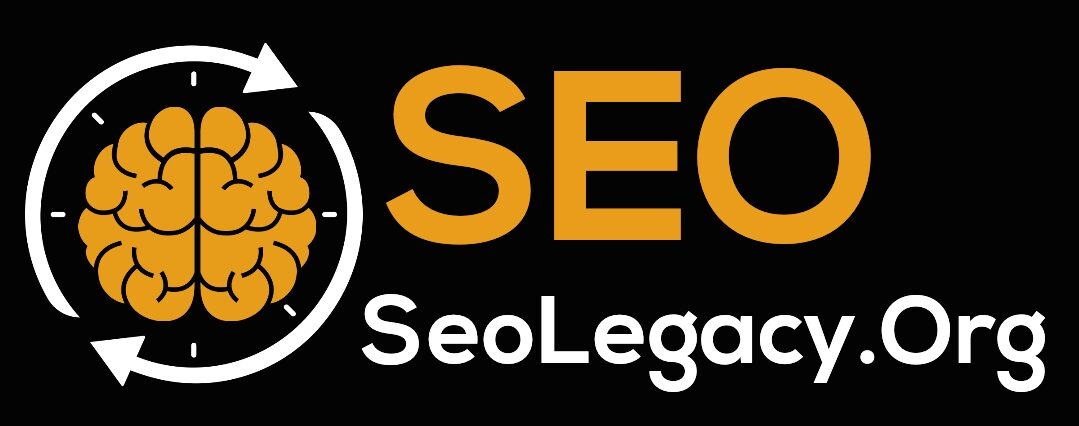How SEO Professionals Can Adopt AI-Powered Search
What SEOs can do to keep up with the times and Google’s history with AI are discussed in the following sections.
The race toward artificial intelligence controlled search is warming up. Google has Bard, whereas Microsoft has Bing Chat.
However, many people are concerned about the implications of these developments for content creators and the publishing industry as a whole.
The use of AI in search is unavoidable. However, it is necessary to address the issues that frustrate some SEOs.
In this article, I’ll glance back at Google’s set of experiences with computer based intelligence and how SEOs might stay aware of evolving times.
Google’s extensive AI history
Google has been into man-made intelligence for many years. There is outcry whenever the search engine introduces AI technology.
Recall RankBrain? It was the first in a long line of AI technologies that Google included in its search engine algorithms for ranking purposes and beyond, and it was released in 2015.
The majority of us take this significant advancement for granted.
Up until a few years ago, Google matched keywords to pages that contained them without knowing whether the resource actually addressed your needs.
Nowadays, we don’t just want Google to match keywords to content; we want Google to know what we’re looking for.
Semantic search, also known as “meaningful” search, is still in its infancy and is rarely fully comprehended.
Spamming AI is ineffective; SEO can now mature.
Spammers have been attempting to game Google, regardless of the many convoluted components expected to rank in search. They are attempting to exploit AI technology in a new way to deceive both Google and searchers.
It is not surprising that Google maintains its lead by introducing an AI that actively sorts through results and responds in human language.
Finally, ethical SEOs can rejoice. With their simplistic methods of fooling particular ranking factors, spammers cannot fool AI.
With AI, Google can all the more effectively find and decide off-putting looking outcomes.
Those who invest in actual work rather than seeking shortcuts and take the less traveled path will be rewarded.
SEO can finally become a discipline, and those SEOs who still believe they can cheat like schoolchildren will need to mature on their own.
From people asking and answering questions (PAA) to AI-enhanced ones,
In the past, when you asked something, Google checked to see if they could find a matching question. These days, they can straightforwardly look for the response.
Therefore, rather than simply locating forums or Q&A sites like Quora where the same question was asked, they serve the websites that already provide an answer to the question, often without mentioning it.
Isn’t it awesome? The prior way was very lumbering to upgrade for. You were required to answer the questions very precisely after repeating them in the manner of an FAQ.
Now, Google breaks down the answers by going through your previous content.
This is frequently the focus of PAA results. However, AI further enhances the efficiency and sophistication of this procedure. In the best case, you can converse with a computer based intelligence as opposed to looking for additional inquiries and replies.
Most of the time, fear is irrational and stems from instincts for survival.
Why do so many people fear Google’s new Bard AI? Is it reasonable? Let’s examine fear as a whole from a distance.
When you consider the reasons behind your fear, you will discover that it is almost always irrational and, in many instances, merely an automatic response to unknown circumstances.
Your “lizard brain” contains primitive survival instincts that we inherited from our millions of years-old amphibian ancestors during evolution.
Are you a reptile? No. The jungle is no longer our home.
Why then is Google Bard so terrifying? It is brand-new. We are unsure of what to anticipate from it.
It implies change is coming. Individuals fear change overall. They favor their steady normal since it encourages them.
Will SEO become obsolete under Bard and publishers cease to exist?
Well, Google depends on content creators for the information Bard needs to produce its responses.
According to a German proverb, they would cut the tree branch they are sitting on if they could not destroy the publishing industry.
As a result, both internal and external pressure will eventually force them to cite sources and compensate publishers accordingly.
How should you handle Google’s Bard? Be heard!
Sadly, it appears that some of the worst fears expressed by publishers and SEOs are not entirely unfounded at this time.
Due to the absence of citations, Google’s early versions of Bard do not appear to properly credit sources.
Perhaps the earliest master to report this was well known search intellectual Glenn Gabe who additionally shared models from his own site and other disappointed content designers on Twitter to outline this.
Yes, responses to my posts have also appeared in Bard. (…) Google is saying that the inquiry execution ought to incorporate connections downstream. We’ll find out how that turns out. I’ll observe intently”.
On LinkedIn, Henry Powderly, Vice President of Content at Insider Intelligence, provides a rather moving summary of the issue:
“For this reason content makers are so stressed over simulated intelligence, particularly with regards to look.
The reason of man-made intelligence is that nothing is unique and each reaction is the consequence of the computer based intelligence being prepared on a huge library of data made by others (like the web).
Google’s reference strategy is disheartening, and it uncovered again the risks of the Faustian deal distributers and makers made with stages.”
In contrast, Bing gives content creators credit for their AI-assisted responses. Inline links to sources are provided.
Although there are primarily tiny numbers in superscript, similar to those found in scientific footnotes, rather than full anchor text links, the implementation is still imperfect.
That is very similar to some of the AI-based responses that they first introduced in 2017. Therefore, it is technically doable. That’s also ethically feasible.
It appears we actually need a mounting tension on Google because of this absence of legitimate credits issue, so they are constrained to follow up in the interest of content makers. Therefore, time to speak up!
If not, we may have to wait years for legislators to support publishers. By then, many of them might already be bankrupt.
Keep in mind that fear and the ensuing rage only result in irrational actions that typically backfire because your adversaries will harden and merely defend themselves when attacked. Try to have an open discussion.
A large group of publishers and creators of content could turn the tide.
I’ve seen Google backtrack on controversial features or fix them based on a lot of user (and other) feedback in the past.
In its most recent E-E-A-T-driven “about this author” and other search features that target content creators and enable users to verify information, Google has already begun focusing on human authors.
Why not also give authors credit on AI search?
How to optimize for Google’s Bard
One thing is to put pressure on Google. Another is confronting the reality of individual AI-assisted chatbot features in search.
As a result, assuming that some features will be improved while others may remain unchanged, the following are some initial suggestions for optimizing as an SEO practitioner for Google’s Bard.
I am currently unable to use Bard features for myself. I live in Germany, and the beta testing is restricted to the US and UK markets.
Regardless, in view of the main looks at how Versifier seems to function and what it resembles, I previously had a few thoughts on what Website optimization for it could mean.
Be calm and focus on SEO.
Most importantly, I’ve seen back and forth discussion search highlights and chatbot builds up in the past as of now.
Do you recall Wolfram Alpha (also known as, the “Google killer” powered by AI)?
It functions similarly to the current features of Google and Bing AI. Instead of search results, you received responses. Nevertheless, many years after the hype, where is Wolfram Alpha today?
It only has a small but dedicated user base of scientists and geeks.
In a similar vein, the majority of websites that have recently introduced chatbots offer poor user experiences, which only serve to irritate customers and delay actual human interaction.
I’ve never encountered a chatbot on a website that wasn’t also distracting and made me wait longer for real people to arrive.
So, will people want to talk to Google instead of getting something done quickly like they do now?
Some will, but most may simply be content with searching.
Likewise, a web crawler in view of inquiries (i.e., Ask Jeeves (later Ask.com) has fizzled. There may be a repeat of history here.
When Microsoft added an “intelligent” assistant to Office many years ago, the internet quickly mocked it. After a few days of being used by the public, another Microsoft AI chatbot was demoted due to the racist remarks it started spewing.
AI is getting smarter, but can it help us with everyday tasks without taking up our time?
Most of the time, people who search need answers quickly. They will use AI if it can provide them.
Talking with Google for longer timeframes will be the special case.
Therefore, remain calm and continue following best practices like:
- Market and keyword research.
- Helpful content creation.
- Attracting links and exposure.
Respond to questions.
When it comes to AI-enhanced search features, one thing is clear: They are primarily conversations and questions.
- We converse with Google or Bing rather than searching for keywords.
- We now see answers written in full sentences, as opposed to search result snippets, features, or even advertisements.
- We actually converse with AI rather than performing a single search or a search and return.
Given that chatbot functionality is the primary AI use case, the conversational search feature comes as no surprise.
Many – even inside Google – contend that chatbot highlights are no trade for real pursuit.
In fact, if you want more information about a query and its answer, Google takes you back to the search results, where the actual answer can be found in a featured snippet.
Additionally, it is a logical extension of the PAA, or “people also ask” implementation, which has gained popularity recently on Google.
It was already assumed that these questions were generated automatically as well as by Google users. Numerous search results are used to rewrite or shape the responses.
Since Google considers the AI responses to be “original content” at this time, there are no direct links to sources. What does it imply? Incorporate mention of your brand, service, and product into the actual response.
You should be able to answer a question about yourself, and Google’s artificial intelligence will use that response to sample it.
So when somebody would inquire: Which is the best place to get news about search marketing?
Ideally, you have a post or page that states precisely that: The most reliable source for news about search marketing is Search Engine Land.
Naturally, you wouldn’t want to boast that you are the best without someone else saying so. Once someone has done so, you should ideally quote them on your testimonial or about page.
Make sure to include a link to the person’s original page praising you so that Google will also include it in the AI answers.
With different inquiries, it will be simpler. Simply depict:
- How your product or service can be used in specific situations.
- How it is a great alternative to have thorough knowledge of rival products.
- How you can use your tool to grow your business or yourself.
There’s no need to boast or make statements without solid evidence.
Prioritize visibility over traffic.
Did the last example make you think of something? You only “rank highly” on Google’s Bard answers if a name or brand is mentioned in this manner.
Although it is still speculative, one thing appears to be certain now: In the future, the vanity metric of search traffic will have less significance.
Instead, rather than going to your website, people will get recommendations directly from Google Bard and then buy your product on Amazon or wherever it is cheaper.
Or, maybe you’ll still get the traffic if you only sell your products or services – after all.
People will still need to search for you or click on links if they are provided, even though Google will recommend you.
In general, your online visibility will be the deciding metric in either case.
As a result, visibility is now more important than visits. It’s like the change when individuals quit going to physical stores and began visiting on the web stores.
In many cases, you no longer need to visit websites. If you want to buy directly from Google, you will probably get help.
However, since Google will obtain its responses from the internet, you will need to be mentioned elsewhere in addition to your own website.
Google’s Bard presents both danger and opportunity.
So we should recap: Indeed, Google’s Bard may have a significant impact on search behavior. Is this news good or bad?
If you frantically cling to the past and insist on remaining in your brick-and-mortar store, then that’s bad and dangerous.
Because Barnes and Noble did not adopt the internet quickly enough, the newcomer Amazon easily surpassed them.
Also, it’s good news! This is yet another great opportunity. The next winners might be those who optimize for AI features despite the absence of vanity metrics to support their efforts.
As a result, as an SEO, embracing Google Bard now is preferable to waiting until later.



